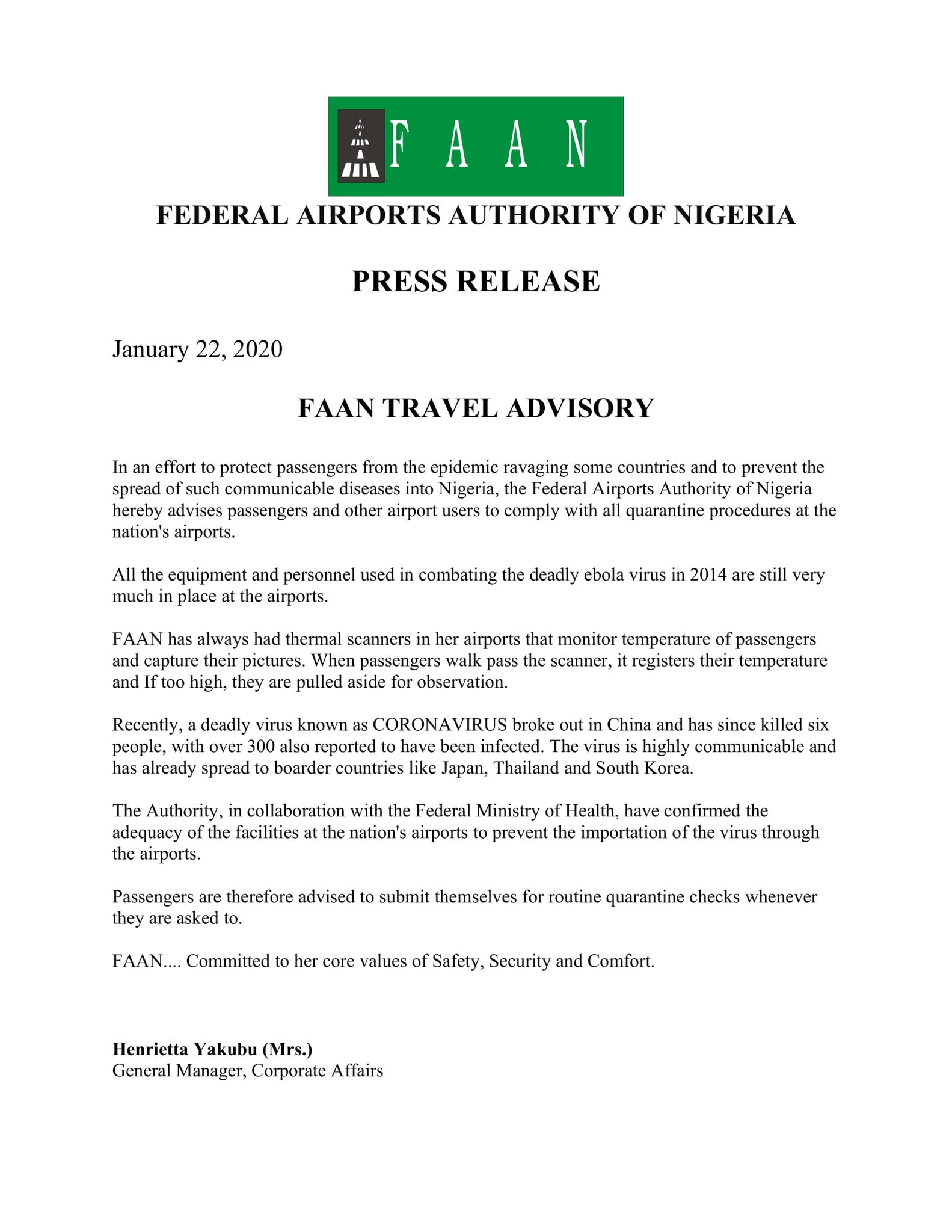The travel advisory was issued to protect Nigerian passengers from the epidemic, and to prevent its spread into Nigeria. The statement reads:
In an effort to protect passengers from the epidemic ravaging some countries and to prevent the spread of such communicable diseases into Nigeria, the Federal Airports Authority of Nigeria hereby advises passengers and other airport users to comply with all quarantine procedures at the nation’s airports.
All the equipment and personnel used in combating the deadly ebola virus in 2014 are still very much in place at the airports. FAAN has always had thermal scanners in her airports that monitor temperature of passengers and capture their pictures. When passengers walk pass the scanner, it registers their temperature and If too high, they are pulled aside for observation.
Recently, a deadly virus known as CORONAVIRUS broke out in China and has since killed six people, with over 300 also reported to have been infected. The virus is highly communicable and has already spread to boarder countries like Japan, Thailand and South Korea. The Authority, in collaboration with the Federal Ministry of Health, have confirmed the adequacy of the facilities at the nation’s airports to prevent the importation of the virus through the airports.
Passengers are therefore advised to submit themselves for routine quarantine checks whenever they are asked to. FAAN is committed to her core values of Safety, Security and Comfort.

In the same vein, NCDC also shared an extensive information about the virus and tips on how to protect ourselves:
How to protect yourself
To reduce the risk of spread of coronavirus, members of the public are advised to adhere to the following measures:
• Wash your hands regularly with soap under running water.
• Cover your mouth and nose properly with handkerchief or tissue paper when sneezing and/or coughing. You may also cough into your elbow if a handkerchief is not available.
• Avoid close contact with anyone showing symptoms of respiratory illness such as coughing and sneezing.
• Avoid self-medication, report to the nearest health facility when you experience any of the above-mentioned symptoms.
• Healthcare workers are always advised to observe standard infection prevention and control measures when attending to patients and take a travel history.
As the situation is evolving, this advisory will be updated as more information becomes available.